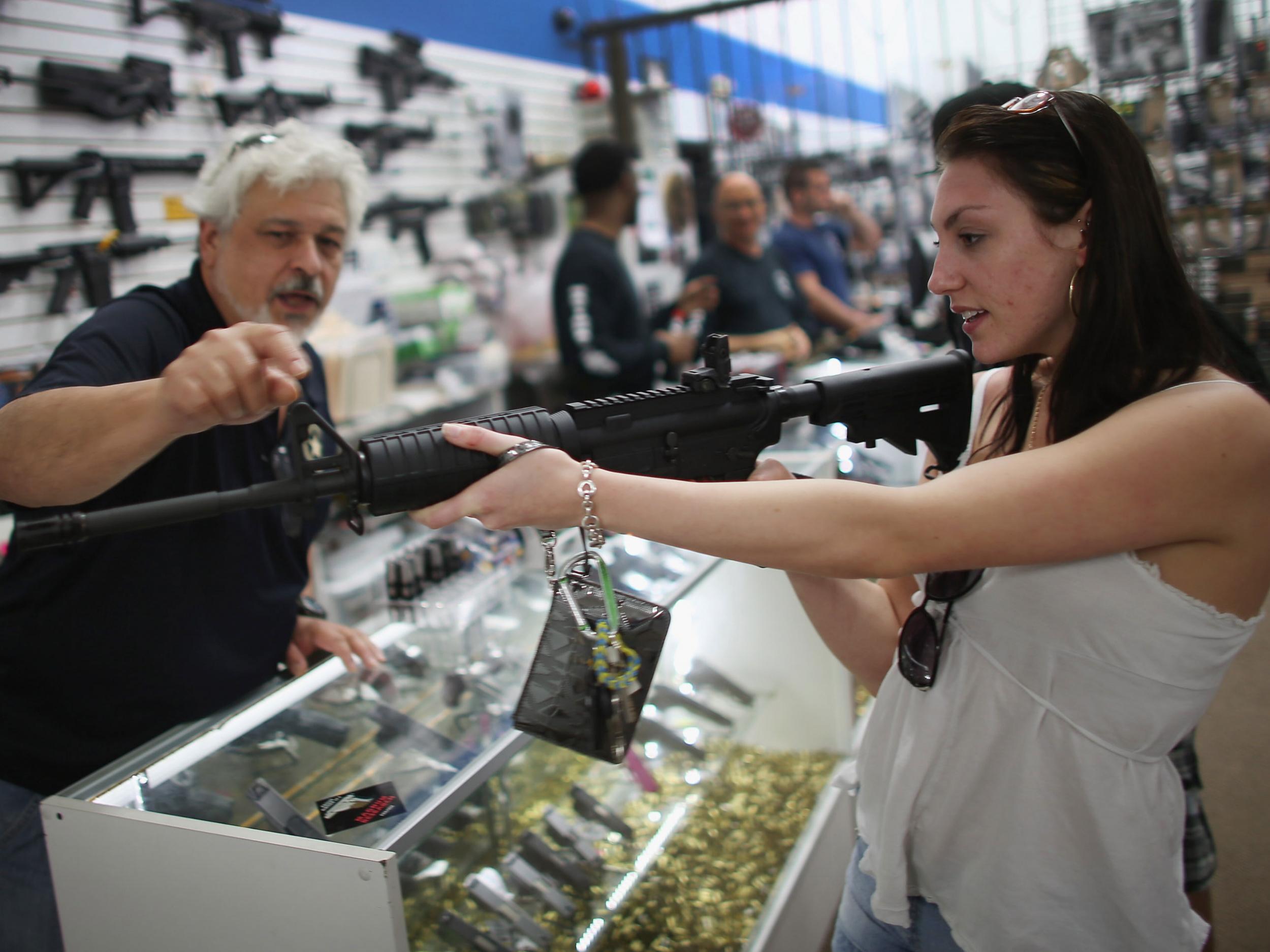Las Vegas shooting: Why shares in US gun companies have spiked since the massacre
US firearms manufacturers frequently do well after mass shootings

Shares in US gun manufacturers rallied strongly after the horrific murder of at least 59 people in Las Vegas.
American Outdoor Brands closed up 3.2 per cent on Monday after news broke of the attack in which more than 500 people were also injured. The shares were maintaining those gains on Tuesday.
Sturm Ruger, America’s largest firearms manufacturer, was up 3.6 per cent on its price before the Las Vegas shooting in morning trading in New York on Tuesday. Olin, which owns the Winchester ammunition brand has also enjoyed gains.
The phenomenon is, sadly, one too frequently witnessed in recent years. A 2016 analysis by hedge fund Quantopian tracked share price data in the aftermath of 20 events, including 12 mass shootings since 2007 as well as actions by Barack Obama on gun control.
An algorithm calculated that an investor who bought shares in Smith & Wesson and Sturm Ruger on the day after one of these events then sold them 90 days later would have netted a return of 365 per cent over a nine-year period, compared to 66 per cent for the S&P 500 Index over the same timeframe.
US firearms manufacturers frequently do well after mass shootings or threats of a regulatory crackdown.
The logic behind this is that atrocities will put pressure on authorities to push through tougher firearms laws. Therefore, panicked gun-lovers go out and buy more weapons, fearing that their ability to do so in future will be restricted.
But past experience shows that significantly tighter gun regulations have been difficult to pass, meaning that gunmakers get a short-term boost to sales without the long-term pain associated with tougher laws. Mass murders using guns have in some respects been good for gunmakers' business in recent years.
US president Donald Trump has repeatedly said he loves the Second Amendment which lays out the right to bear arms. And since becoming president, he has begun rolling back restrictions on gun sales.
Last month, gun manufacturers' shares jumped on the back of reports that Mr Trump was planning to relax rules on sales of American firearms around the world.
Four senior US officials told Reuters at the time that the President intends to shift control of non-military weapons sales outside the US from the security-focused State Department to the trade-focused Commerce Department.
Las Vegas shooting – in pictures
Show all 15
In February, about a month after he was inaugurated, Mr Trump signed a resolution blocking an Obama-era rule that would have prevented an estimated 75,000 people with mental disorders from buying guns.
The rule was part of former President Barack Obama's push to strengthen the federal background check system following the 2012 Newtown, Connecticut shooting – the deadliest school shooting in US history.
Subscribe to Independent Premium to bookmark this article
Want to bookmark your favourite articles and stories to read or reference later? Start your Independent Premium subscription today.

Join our commenting forum
Join thought-provoking conversations, follow other Independent readers and see their replies